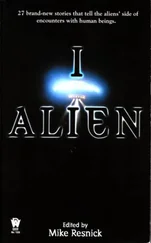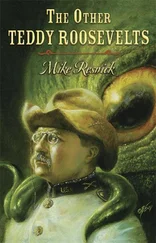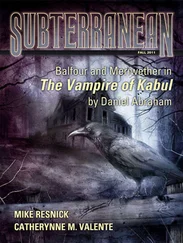Mike Resnick - Birthright
Здесь есть возможность читать онлайн «Mike Resnick - Birthright» весь текст электронной книги совершенно бесплатно (целиком полную версию без сокращений). В некоторых случаях можно слушать аудио, скачать через торрент в формате fb2 и присутствует краткое содержание. Жанр: Старинная литература, на английском языке. Описание произведения, (предисловие) а так же отзывы посетителей доступны на портале библиотеки ЛибКат.
- Название:Birthright
- Автор:
- Жанр:
- Год:неизвестен
- ISBN:нет данных
- Рейтинг книги:4 / 5. Голосов: 1
-
Избранное:Добавить в избранное
- Отзывы:
-
Ваша оценка:
- 80
- 1
- 2
- 3
- 4
- 5
Birthright: краткое содержание, описание и аннотация
Предлагаем к чтению аннотацию, описание, краткое содержание или предисловие (зависит от того, что написал сам автор книги «Birthright»). Если вы не нашли необходимую информацию о книге — напишите в комментариях, мы постараемся отыскать её.
Birthright — читать онлайн бесплатно полную книгу (весь текст) целиком
Ниже представлен текст книги, разбитый по страницам. Система сохранения места последней прочитанной страницы, позволяет с удобством читать онлайн бесплатно книгу «Birthright», без необходимости каждый раз заново искать на чём Вы остановились. Поставьте закладку, и сможете в любой момент перейти на страницу, на которой закончили чтение.
Интервал:
Закладка:
There was a lot of patriotic and philosophic gobbledegook, but the gist of it was quite simple: Man, for all practical purposes, now ruled the galaxy as completely as the galaxy could be ruled. The next step was the exploration and ultimate annexation of the Andromeda galaxy. The most immediate and serious problem was the unbelievably vast distance which, for the first time in Man's history, would not be measured in inches or feet or miles or parsecs, but in hundreds of thousands of light-years.
The initial plans called for a miles-long spaceship, populated with ten or twelve couples to begin with, and able to hold not only them but five generations of their progeny. The cost was prohibitive, but what the Director wanted the Director usually got, regardless of cost. Then, a few years into the project, an obscure scientist on one of the domed Capellan colonies came up with another breakthrough in spaceflight, or rather, with the first truly major improvement in almost seven thousand years. It was nothing more than a complex formula for a Reduced Tachyon Drive (which, paradoxically, produced far greater speed than the standard model), but it seemed to check out and was submitted to those in charge of the project. They tested it, discovered to their surprise that it worked as
well in fact as in principle, and incorporated it into their plans.
Now the trip would be made not in generations, but in years: eleven of them, to be exact. A three-year survey of the new galaxy would follow, and the crew would be home to report their findings a quarter century after they left.
Then the plan had to be modified once again. There would be no crew, and possibly no flight at all. The requisite engines were so huge, so unstable, so incapable of working at anything other than achieving an undreamed-of speed, that excess weight simply could not be accommodated. Man found himself back at the dawn of the Space Age in that respect: He had the firepower to reach Andromeda in years rather than eons, but the firepower couldn't accommodate an extra ton beyond its own weight. Science grappled with the problem, and there was no doubt that it would eventually be solved. But the Director had no interest in eventualities; his idea of a fitting footnote in the history books would be the attainment of an Andromeda colony within his lifetime. Which was where Bartol came in. A lot of people wondered what a biologist was doing on the Andromeda Project, but the fact of the matter was that, for all practical purposes, he was the Project. Miniaturization of controls and compression of air and foodstuffs had gone about as far as they could go, and they still took up a hundredfold more room than was available. Even a Deepsleep chamber took too much room and power, and while the supplies required for a “frozen” pilot were greatly diminished, they were still too much for the ships to hold. Then one of the bright boys in the lab suggested that the Project look into utilization of the Hunks, and since Bartol was the leading Hunk authority around, he was commandeered and put to work forthwith. Nobody, not even Bartol, knew exactly what made the Hunks tick. They were as weirdly constituted a race of beings as had ever been discovered, and Psychology had taken more than four centuries to finally declare that they were sentient. The average Hunk looked like a large, green, slimy amoeba. It possessed no sensory organs that had yet been detected, though it was obviously able to sense the presence of others. It moved by the most awkward and inefficient crawling mechanism yet devised by Nature, and seemed to have no discernible top or bottom. But it did possess one thing that made it invaluable: a body chemistry that inhaled a carbon dioxide compound, exhaled an oxygen-nitrogen compound, ingested the constituents of human waste, and excreted the constituents of human nourishment. In brief, it could be hooked up to a human pilot in a totally symbiotic relationship. Obviously neither life form would exhale or excrete quite as much as it inhaled or ingested, but the difference was slight enough so that the ship could carry the extra amounts that were necessary. It was the only possible means of salvaging the Andromeda Project in the foreseeable future, and both the Floating Kingdom and the Project scientists were quick to embrace it. The pilots were another matter altogether. Softly and infrequently at first, then ever more vocally and incessantly, they objected to the symbiotic relationship.
They object, said Psychology, to the concept of living off another's creature's leavings, of eating its excrement and breathing what it exhales.
“Then condition them,” said Bartol.
So Psychology took the potential pilots away for a month, and when they came back they had no objections whatsoever to the less tasteful physical aspects of symbiosis. And they still didn't like it.
They now object, said Psychology, to the fact that their health and well-being depends on the health and well-being of a totally alien being. They don't want to die simply because a Hunk gets sick. “Then teach them Hunk physiology and medicine,” said Bartol. So Biology took the pilots off for a crash course in Hunk physiology, and made sure they knew even more about keeping Hunks healthy than about themselves. And they still hated it.
Bartol finally called Jesser, the pilot most likely to make the first voyage, into his office and offered to discuss the problem with him.
Jesser entered the room, a chip on his shoulder and a baleful glare on his face. “I understand we still have a problem of sorts,” said Bartol, offering the pilot a drink, which Jesser refused.
“None that can't be solved by getting rid of the Hunks,” said Jesser. “I'm afraid that's totally out of the question,” said Bartol. “There is simply no practical way of making an intergalactic voyage without them. Besides, the Hunks aren't making any trouble for the Project; it's you and the other pilots.”
“Then get yourself some new pilots,” said Jesser. “Because I'm not tying into any Hunk, not for twenty-five years, not for twenty-five minutes.” “So I've been told,'’ said Bartol. “I don't suppose you'd like to explain your reasons to me. I know that you feel no physical revulsion to a life-giving symbiotic relationship, and I know you are every bit as capable of keeping a Hunk partner alive as I am. So what seems to be the problem?” “I'm just not going to do it,” said Jesser, softly but firmly. “Go ahead and fire me if you want. I can get work elsewhere.”
“If you were the only pilot with this attitude, I'd fire you in two seconds,” said Bartol. “But you're not, so I'm going to get to the bottom of this. What is your objection to having a Hunk keep you alive long enough to be the first sentient being to visit another galaxy?” “You don't count very well, do you?” said Jesser “Now what the hell is that supposed to mean?” said Bartol as Jesser turned and left the room. He consulted Psychology again, and shortly thereafter the answer came back to him. The pilots had no objection to letting the Hunks keep them alive. They had no objection to the threat of
death facing them should a Hunk sicken or die.
But they objected like an hell to the thought of a Hunk being in the first ship to reach Andromeda. “But that's crazy!” exclaimed Bartol.
“Maybe so,'’ said Lavers of Psychology. “But that's the problem in a nutshell. This is going to be Man's finest hour, his greatest achievement, and they are totally unwilling to let any other race share in it.” “It's the stupidest thing I've ever heard of,” said Bartol. “We can't get there without the Hunks.” “You know it, and I know it, and they know it. Their answer is that we should wait until we have the technology to do it on our own, as Man has always done things.” “So condition it out of them.”
Читать дальшеИнтервал:
Закладка:
Похожие книги на «Birthright»
Представляем Вашему вниманию похожие книги на «Birthright» списком для выбора. Мы отобрали схожую по названию и смыслу литературу в надежде предоставить читателям больше вариантов отыскать новые, интересные, ещё непрочитанные произведения.
Обсуждение, отзывы о книге «Birthright» и просто собственные мнения читателей. Оставьте ваши комментарии, напишите, что Вы думаете о произведении, его смысле или главных героях. Укажите что конкретно понравилось, а что нет, и почему Вы так считаете.











